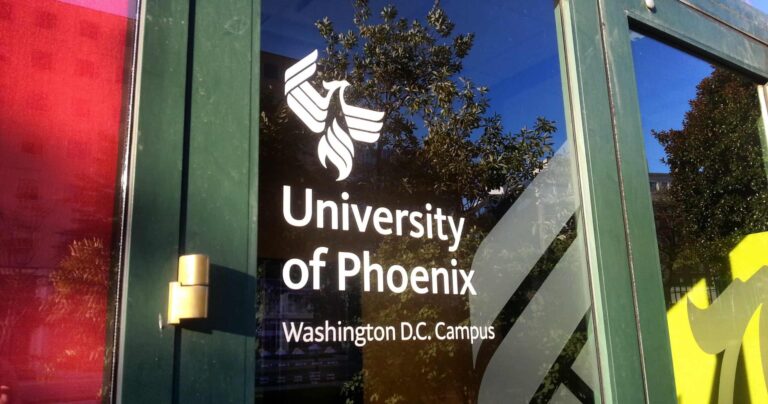Apollo Education Group, the parent company of the University of Phoenix, has been acquired in a landmark deal valued at $1.1 billion, EdSurge reports. This significant transaction marks a pivotal moment in the higher education sector, reflecting ongoing shifts in the ownership and management of for-profit educational institutions. The acquisition is expected to have wide-reaching implications for the University of Phoenix and its thousands of students nationwide.
Apollo Education Acquisition Signals Major Shift in For-Profit Higher Education Landscape
The acquisition of Apollo Education, the parent company of the University of Phoenix, for a substantial $1.1 billion marks a pivotal moment in the evolution of the for-profit higher education sector. This deal not only reshapes ownership dynamics but firmly positions Apollo as a linchpin in the transformation of educational delivery and institutional strategy. Industry experts highlight this transaction as a potential catalyst for increased investment in innovative learning technologies and enhanced student support systems, areas that have historically been under scrutiny within the for-profit model.
Key implications of this acquisition include:
- Strategic realignment: A shift towards more diversified program offerings and flexible, online-centric education options.
- Financial infusion: Expanded capital reserves to fuel infrastructure and curriculum development.
- Market consolidation: A trend toward fewer but more financially stable players dominating the sector.
- Regulatory focus: Increased attention on student outcomes and compliance with evolving government policies.
| Aspect | Impact |
|---|---|
| Institutional Reach | Expanded national and global footprint |
| Student Demographics | Diversification with a focus on non-traditional learners |
| Technology Adoption | Accelerated integration of AI and personalized learning tools |
| Competitive Landscape | Heightened competition among for-profit and nonprofit institutions |
Implications for University of Phoenix Students and Faculty Under New Ownership
The acquisition of Apollo Education, including the University of Phoenix, marks a significant shift in the landscape for both students and faculty. For students, this change could translate into renewed emphasis on technology-driven learning platforms and potentially expanded program offerings, aligned with the new owner’s strategic goals. However, there might also be concerns about tuition rates, financial aid continuity, and the overall stability of ongoing academic programs during the transition period.
Faculty members can anticipate modifications to institutional policies, administrative oversight, and potentially the pace of innovation within the curriculum. Key considerations include:
- Job security and contract renegotiations as the new ownership evaluates staffing needs.
- New investment in teaching resources that could enhance online and hybrid class delivery models.
- Increased focus on student retention and graduation rates, affecting course design and faculty performance metrics.
| Aspect | Potential Impact |
|---|---|
| Student Experience | Enhanced digital tools & support services |
| Tuition & Financial Aid | Review of policies – possible adjustments |
| Faculty Roles | Renewed contract terms, innovation incentives |
| Curricular Development | Stronger emphasis on market-relevant programs |
Analysis of Apollo Education’s Strategic Future and Market Positioning
The acquisition of Apollo Education marks a pivotal moment in the competitive landscape of for-profit higher education. With the University of Phoenix as its flagship institution, the company has long held a significant share of the online education market, capitalizing on the growing demand for flexible learning options. Post-acquisition, the strategic focus is expected to intensify on leveraging digital innovation to bolster enrollment numbers and improve student engagement through personalized learning experiences. Key strategic priorities likely include:
- Enhancing technological infrastructure to support hybrid learning models
- Expanding partnerships with corporations for workforce development programs
- Investing in data analytics to optimize student outcomes and retention rates
Moreover, the evolving regulatory environment poses both challenges and opportunities for Apollo Education. Regulatory compliance will require adaptive governance strategies to maintain accreditation and access to federal funding. The company’s market positioning can be strengthened by emphasizing transparency and quality assurance, while simultaneously exploring new niches such as micro-credentials and skill-based certifications. The table below outlines a comparative snapshot of Apollo Education against major competitors:
| Institution | Online Enrollment | Market Focus | Recent Innovations |
|---|---|---|---|
| University of Phoenix | 120,000+ | Adult Learners & Professionals | Adaptive Learning Technology |
| Western Governors University | 100,000+ | Competency-Based Education | Subscription Pricing Model |
| Southern New Hampshire University | 90,000+ | Affordable Degree Programs | Social Learning Platforms |
Recommendations for Stakeholders Navigating Post-Acquisition Changes
To effectively manage the transition following the $1.1 billion acquisition of Apollo Education, clarity and proactive communication stand paramount. Stakeholders should prioritize establishing transparent channels to address uncertainties among faculty, students, and administrative staff. This includes regular updates on academic programming, financial policies, and shifts in governance structures. Emphasizing collaboration will mitigate disruption and foster a unified institutional vision aligned with new ownership goals.
- Engage in open dialogue with all university community members to surface concerns early.
- Implement feedback mechanisms to adapt integration strategies responsively.
- Provide tailored support resources to assist faculty and staff in adjusting to operational changes.
Furthermore, aligning long-term strategic objectives across the newly formed enterprise is crucial. Stakeholders must focus on measurable benchmarks to ensure the acquisition’s promises translate into academic excellence and sustained student success. Leveraging data-driven insights can illuminate progress areas and potential risks. The table below outlines key focus areas, recommended actions, and expected outcomes to guide stakeholders through the post-acquisition environment:
| Focus Area | Recommended Actions | Expected Outcomes |
|---|---|---|
| Academic Quality | Review curriculum integration and faculty development initiatives | Enhanced program relevance and teaching standards |
| Student Experience | Streamline administrative procedures and expand support services | Improved retention and satisfaction rates |
| Operational Efficiency | Optimize resource allocation and unify technology platforms | Lower costs and increased process effectiveness |
The Way Forward
As Apollo Education transitions to new ownership following the $1.1 billion acquisition, the future trajectory of the University of Phoenix and its affiliated institutions will be closely watched by industry stakeholders. This deal underscores the continuing evolution and consolidation within the higher education sector, reflecting broader trends aimed at adapting to shifting market demands and student needs. Further developments are expected as the new leadership sets its strategic vision for Apollo’s next chapter.







